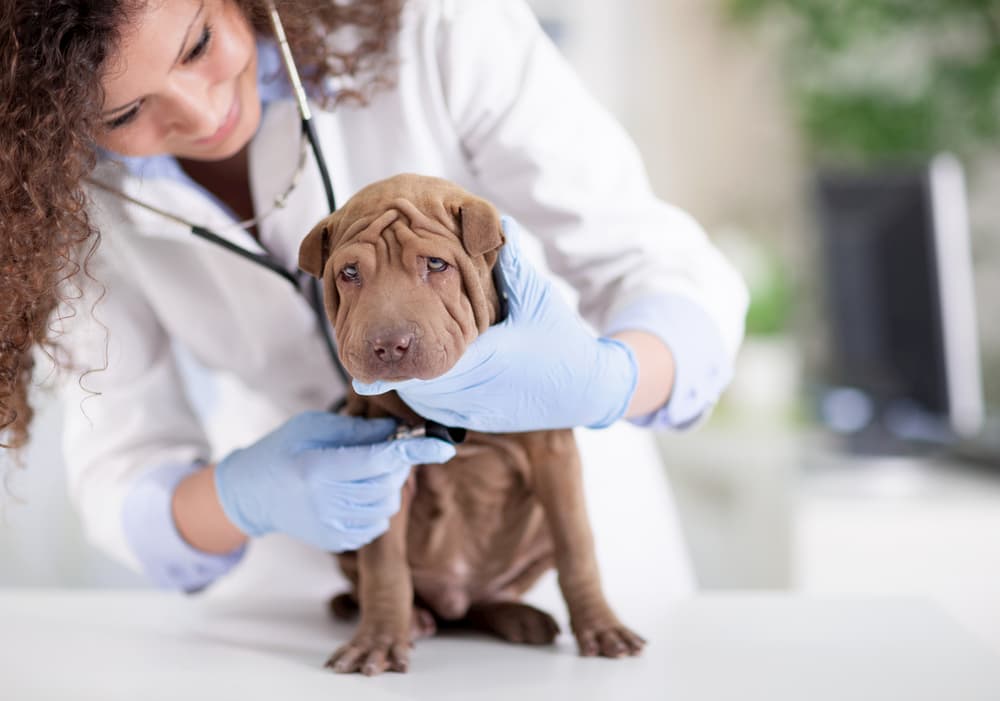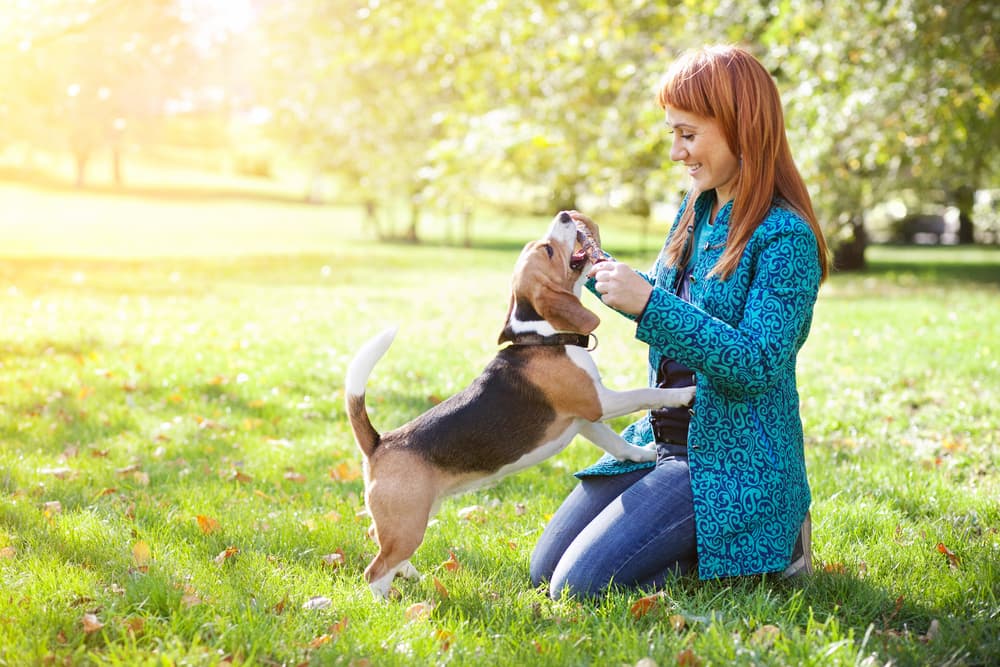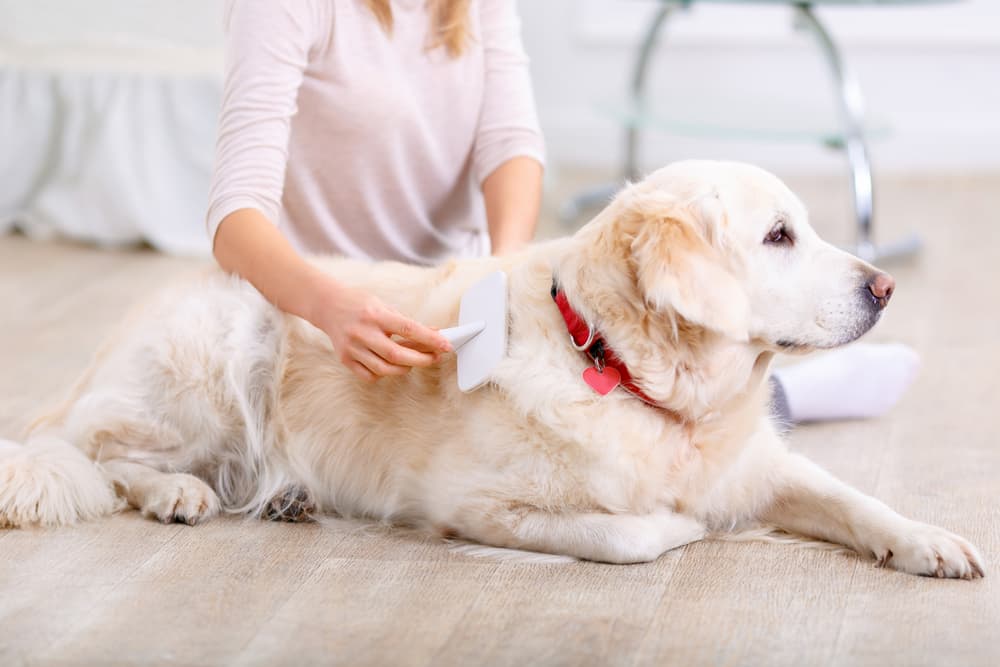6 Simple Ways to Be a Responsible Dog Owner
By Kate Hughes
Reviewed by Hanie Elfenbein, DVM
One of the best parts of being a dog owner is that our pets are capable of loving us unconditionally. So long as we take proper care of them and show them affection, we can gain their respect and adoration.
As rewarding and joyful as pet parenting can be, it’s also a big commitment and responsibility. A lot goes into properly caring for a dog. It all starts with selecting the right type of dog for your lifestyle and then making educated choices to meet your pet’s needs.
“Our canine companions have the same basic physical and emotional needs as we do. It is our job as pet parents to provide for those needs,” explains Dr. Colleen Elligott, a veterinarian at Lakeside Animal Hospital in Odessa, Florida. “A pet parent can provide for a pet’s needs only if the pet’s needs are recognized and understood,” she adds.
To help ensure a happy, healthy relationship with your four-legged family member, here are six simple ways to be a responsible dog owner.
6 Simple Ways to Be a Responsible Dog Owner
Get the basics right
Obviously dogs need to eat and drink on a daily basis, but food type, feeding frequency, and portion sizes are important details to get right. Overfeeding or giving the wrong kind of food can lead to an upset stomach (and a messy cleanup).
When choosing a dog food, look for one that meets your pet’s specific nutritional needs. “Breed size and age determine the balance of nutrients required,” says Dr. Ian Wright, a veterinary surgeon and co-owner of Mount Veterinary Practice in the U.K. Beyond this general outline, he adds that some dogs “have specific dietary sensitivities or allergies” and other health conditions that can be controlled with specific types of diets, such as hydrolyzed protein or low-fat choices.
Your veterinarian is a great resource to help “identify your dog’s particular nutritional requirements and assist in selecting an appropriate diet for your pet or even referring you to a veterinary nutritionist,” Elligott says.
All dogs should also have a space of their own, whether that’s a crate or a doggie bed next to your favorite recliner. “Your veterinarian can also help you create and provide safe places for your pet in your home and advise on appropriate options for keeping your pet safe when you’re away from home,” Elligott says.
Seek routine veterinary care

Beyond providing for a dog’s most basic needs, responsible dog owners should ensure their pet receives routine veterinary care. “Dogs need routine veterinary care to [help] prevent disease, including vaccination against dangerous pathogens, parasites [protection], and dental care,” Wright says.
All dogs should have at least an annual checkup. “Veterinary care is essential to a dog’s well-being,” Elligott says. “Your veterinarian will help you customize a health care plan to address the specific needs of your dog and your family.” To prepare for your pet’s appointment, make a list of any medications or supplements he may be taking, as well as any questions you have for your veterinarian, Elligott recommends.
Dogs should also stay on schedule with recommended vaccinations for common diseases, such as rabies, canine parvovirus, and distemper, as well as year-round parasite control to protect against heartworm disease, intestinal worms, ticks, and fleas.
Invest in pet insurance
As a responsible dog owner, you may choose to invest in pet insurance, which often covers routine procedures like vaccinations and can offer financial relief in the event of an unexpected health issue. “For many pet owners and families, having proper pet insurance with a plan that covers 80 to 90 percent or more [of office visits or procedures] can all too often make the difference between life and death in the event of serious illness or accident,” says Dr. Jon Rappaport, co-medical director of Advanced Veterinary Care Center in Davie, Florida.
When pets are insured, it can help simplify decisions regarding their health and veterinary care, Rappaport says. “Treatments can be decided based purely on medical needs and quality of life outcome, without having financials cloud that decision. That is putting our pets first.”
Make time for exercise and enrichment

Dogs require regular exercise, but how much depends on a variety of factors, including their age, breed, and overall health. “One way to strengthen the bond with your dog is to spend time daily exercising or playing together,” Elligott recommends. “A properly exercised dog is calm and can be less reactive. Play is also a way of stimulating thought and fulfilling your dog’s cognitive needs.” Elligott suggests playing hide-and-seek with your dog or teaching him some new tricks.
Older dogs still need exercise. Walks around the neighborhood, with plenty of time for sniffing, provide both physical exercise and cognitive enrichment.
While out on a walk or visiting the park, your dog could be exposed to a variety of worms— a good reminder to make sure his parasite protection is up to date.
Incorporate training and socializing
Ensuring dogs are well-trained and well-socialized is another hallmark of a responsible dog owner. “Socialization is extremely important to build confidence in dogs, especially in puppies,” Wright says. “Dog training is helpful practically, but also as an exercise you can do with your pet, further strengthening the human-animal bond.” A lack of training and proper socialization are the most common reasons dogs are relinquished to shelters.
Teaching your dog a solid “recall” (coming when called) and other foundational commands is important for his safety. If your dog’s behavior is unruly, bonding becomes significantly more challenging, Elligott says. Your veterinarian can refer you to local positive reinforcement trainers and may even offer some training or puppy socialization classes. “Do not overlook consulting with your veterinarian with issues pertaining to any behavior concern,” Elligott says. “Your veterinarian will be able to evaluate your pet for potential underlying medical causes and point you in the right direction if assistance is needed.”
Establish a grooming and hygiene routine

“Routine grooming and hygiene are essential to your dog’s health and can provide an opportunity for additional bonding time,” Elligott says. How often to bathe a dog depends on their breed, type of coat, lifestyle, and other factors. Talk to your veterinarian or a professional groomer if you need help figuring out an ideal grooming schedule for your dog, she recommends. Wright suggests brushing your dog’s coat at least once a week to dislodge molted hair and help prevent matting.
Other healthy practices to incorporate into your dog’s routine include nail clipping and dental hygiene to ensure healthy teeth for life. “Activities that can be perceived as stressful, such as teeth cleaning and coat brushing, can become enjoyable for you and your pet if done regularly,” Wright says. You can train your dog to be comfortable with the cleaning by using positive reinforcement techniques. “Your dog will become used to the activity and enjoy the attention.”
Responsible pet ownership is about all of the decisions you make for your pet. Your veterinarian can provide valuable insight about meeting your dog's needs and making sure the whole family thrives together.
Disclaimer: The author received compensation from Elanco US Inc., the maker of Interceptor Plus and Credelio, for her services in writing this article.